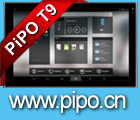Nicolas Pitre of Linaro and his team have worked to reduce the size of the Linux kernel and user space binaries to make them suitable for very small IoT applications to enable the Internet of Tiny Linux. Here at Linaro Connect Vancouver 2018, Linaro shows mainline Linux kernel for IoT devices, running with as little as 4MB of RAM here for example Google IoT.
Category: Linaro Connect
Internet of Tiny Linux, Google IoT on ARM Cortex-A5 memory constrained device
Kodi Playback with Standard V4L2 Stack
Full upstream implementation of Hardware accelerated video decoding (mainly H264) with the generic V4L2 Mem2Mem API, Zero-copy rendering with DRM Atomic kernel Drivers, DMA-BUF transferred from V4L2 to DRM, FFmpeg V4L2 Mem2Mem integration with Kodi, Kodi GBM Display for Atomic Direct to plane rendering.
Get early access to all videos (weeks/months before everyone else), get business cards to companies filmed, support my video-blogging work, become a member
Wi-Fi and Bluetooth single chip Unisoc in UCRobotics IVY5661 IoT Edition 96Boards development board
This is a Wi-Fi and Bluetooth single chip solution IoT Edition 96Boards, it can be used as a Wi-Fi Repeater, for Bluetooth on-boarding, Bluetooth 5 Mesh Network. It’s an ARM Cortex-M4 dual core, runs Zephyr. You can read more about it here
Get early access to all videos (weeks/months before everyone else), get business cards to companies filmed, support my video-blogging work, become a member
Linux microPlatform, secure IoT updates with Foundries.io and Toradex
At Linaro Connect Vancouver 2018, Foundries.io and Toradex discuss Linux microPlatform, what microPlatform is and how it helps Toradex to build their next generation Software Platform.
Linux microPlatform is an open source, minimal, secure, updatable Operating System based on OpenEmbedded / Yocto Project. Toradex ports the microPlatform to its Arm-based System on Modules and it uses it as the basis for its future Software Planform called Torizon.
Linux microPlatform modularized the embedded software stack utilizing Docker Containers, and so it provides a robust and simple to update platform. It includes a secure Uptane-compliant over-the-air update solution using OSTree.
Founderies.io provides continuous updates to Linux microPlatform, as they believe the latest software is the most secure software.
Toradex also elaborates on its plans to simplify developers’ lives with its Torizon platform leveraging Linux microPlatforms, such as simplifying application development, enabling a modern DevOps workflow and easing migration from Windows-based systems.
Get early access to all videos (weeks/months before everyone else), get business cards to companies filmed, support my video-blogging work, become a member at http://youtube.com/charbax/join
Linaro’s Linux Kernel Functional Test framework (LKFT)
Linaro LKFT build uses OpenEmbedded to build a userspace image, along with the kernel, for each board and branch combination under test.
LKFT is Linaro’s Linux Kernel Functional Test framework.
The mission of LKFT is to perform functional regression testing on select Linux kernel branches in real time (as they’re updated) and report any regressions as quickly as possible. This is performed by executing a variety of functional-tests on a selection of user-space operating systems.
The goals of LKFT are to shorten derivative Linux kernel release intervals, increase the confidence of upstream Linux kernel engineers in the quality of their releases, and increase the confidence of downstream adopters of those Linux kernel trees. Ultimately the goal is that LKFT will encourage downstream hardware vendors to more frequently update the Linux kernel that runs on their devices in order that consumers might benefit from bug and security updates.
As part of Linaro’s mission to improve the Arm architecture eco-system, the LKFT team reports discovered regressions to Linaro kernel developers, Linaro members, and upstream Linux kernel engineers.
It is important to the Arm eco-system that Linaro also fix as many failures as are found. The LKFT team invests time into identifying, reporting, and fixing upstream kernel regressions, identifying kernel regressions in select member-hardware SoC (system-on-a-chip) trees, fixing test-suites by contributing to upstream testing projects, fixing kernel configurations, improving full OS stack integration (firmware, kernel, userspace), and improving Arm device automation integration.
UEFI at Linaro Connect Vancouver 2018
Unified Extensible Firmware Interface (UEFI) is a specification for a software program that connects a computer’s firmware to its operating system (OS). UEFI is expected to eventually replace BIOS. Like BIOS, UEFI is installed at the time of manufacturing and is the first program that runs when a computer is turned on.
Google IoT Demo for Zephyr RTOS With TF-M Secured on Musca
In this demo, the Trusted Firmware M is providing the SPE and JWT sign, Zephyr is providing the NSPE and The Google IoT application is running on Zephyr using secure services from Trusted Firmware M.
– Platform Security Architecture (PSA) is an IoI security framework being developed by Arm.
– Trusted Firmware M (TF-M) is an open source project to provide PSA compliant secure firmware for M profile devices.
– Zephyr is a Linux Foundation Collaboration Project to provide a small, scalable RTOS for connected, resource constrained device.
– Arm Musca-A1 subsystem based on Armv8-M which allows partitioning the SW execution in Secure and Non Secure domain.
Testing Arm with Arm with LAVA and 96Boards
This is a mini LAVA lab running on a Dragonboard 410c to test any other 96Boards, this is a way to use Arm to test Arm boards in a simple affordable reproducible way.
Collecting power measurements in CI Loop
At the Linaro Connect Vancouver 2018, Lisa Wen of the Power Management working group shows the work that they are doing to optimize power management.
KernKonzept Open-Source Automobile Safety
KernKonzept talks Open-Source Automobile Safety: EB Corbo and the L4Re microhypervisor:
– Renesas R-Car3 H3 Platform
– Virtualized Cluster and IVI
– Based on AGL
– Graphic Virtualization with Imagination’s PowerVR Graphics
OpenCV Color Segmentation and Tracking on DragonBoard 820c
This demo is based and tested on the DragonBoard 820c, but should be able to work on varying platforms. In summary, it counts objects by color passing in the same direction through the camera field of view. It can count multiple objects simultaneously. The OpenCV functionality leveraged by this demo includes the following:
– Object segmentation using color
– Valid object identification by size
– Frame stitching to track and count multiple simultaneous moving objects by color
– Provides hooks to monitor performance when algorithm changes to – – OpenCV library calls are made for identification tuning
– Provides hooks to export results to the cloud
Jon Masters of Red Hat talks Arm Servers, fixing Meltdown/Spectre, HPC, A64FX, Ampere
Jon Masters is the Computer Architect, Chief Arm Architect with extensive experience at Red Hat with the deeper levels of CPU and Software optimization, adapting and preparing the ecosystem of Cloud, Supercomputing, talks about all the latest Arm Servers, including those coming up with the Marvell ThunderX2, Qualcomm Centriq 2400, Ampere eMag, talking about ARM 10nm vs Intel 14nm, talking about his involvement fighting the industry’s Meltdown and Spectre vulnerabilities, explaining some of the latest things done by Linaro in this space.
Standardizing software support for 96Boards with Mani
Mani is an Applications Engineer at 96Boards team of Linaro. He works on improving the user experience with 96Boards by upstreaming it’s stadardized software support. He goes over the journey of how he started with 96Boards, what his initial responsibilities were and how it has been evolved over time. He also explains his recent work towards standardizing the software support for 96Boards and stresses the importance of having a unified software layout across all 96Boards of same category. In this video, he mentions his latest work towards standardizing the LED labels/triggers in Linux kernel and how that impacts the user experience on userspace library such as MRAA (https://github.com/intel-iot-devkit/mraa).
MRAA library with Mani of 96Boards
MRAA (https://github.com/intel-iot-devkit/mraa) is a low level skeleton library for Linux based systems which provides userspace access to the peripherals on 96Boards Consumer Edition boards using multiple interfaces such as C, C++, Python, Java and Javascript. Mani, being the Co-Maintainer of this library, talks about the history of how 96Boards started using this library instead of their legacy 96BoardsGPIO library. Also, he explains how the MRAA library serves well for them to handle multiple 96Boards with different SoCs which no other platform is doing.
96Boards Mezzanine Initiative
96Boards Mezzanine Initiative is a community-led, organized and maintained initiative. This initiative aims to expand the 96boards ecosystem and promote open-hardware.
96Boards Mezzanine-Community GitHub: https://github.com/96boards/mezzanine-community
Open Source Academics (OSA) by 96Boards with Robert Wolff
Open Source Academics (OSA) by 96Boards (https://github.com/osacademics) aims to facilitate and expand the educational experience on a global stage by providing scalable curriculum and standardized course materials through an open source platform. To fully understand the diverse nature of OSA, this summary will be broken down into seven discrete sections: Motivation, Mission, Platform, Stakeholders, Infinity Committee, Incentives and Roadmap.
OSA wants to unite industry and academia to create, and host a fully functional and open sourced educational platform which facilitates consumption and contribution of standardized educational curriculum and incentivized course materials on a global scale (with a current focus on STEAM content). OSA will work with stakeholders to achieve a balanced set of standards and incentives which encourage collaboration and drive content quality and growth.
You can watch more 96Boards videos at https://youtube.com/96boards
Fujitsu A64FX Post-K Supercomputer: World’s Fastest Arm Processor
Fujitsu A64FX is the new fastest Arm processor in the world, built on 7nm it has 2.7 TFLOPS performance per chip suitable for high-end HPC and AI, they aim to create with it the world’s fastest supercomputer with it by 2021. A64FX is the first processor using the new Armv8-A Scalable Vector Extension (SVE) to accelerate a wide range of large-scale scientific computing, including deep learning. Fujitsu is working closely with Linaro to enrich the Arm HPC ecosystem. A64FX will be featured in the post-K computer, a supercomputer being developed by Fujitsu and RIKEN as a successor to the K computer, which achieved the world’s highest performance in 2011. The organizations are striving to achieve post-K application execution performance up to 100 times that of the K computer. It offers a number of features, including broad utility supporting a wide range of applications, massive parallelization through the Tofu interconnect, low power consumption, and mainframe-class reliability.
You can watch Fujitsu’s keynote at Linaro Connect here
System76 wants to make a high-end ARM Laptop and Desktop
System76 is a computer manufacturer based in Denver Colorado specializing in laptops, desktops and servers running Linux. System76 talks about their upcoming efforts to move manufacturing in-house, and what that may mean for the future of the ARM Powered Linux Laptop and Desktop.
Arm NN and the Linaro Machine Learning Initiative
Jem Davies is the General Manager of the Machine Learning Group at Arm, he talks about the new Machine Learning Collaboration with Arm NN and Linaro, where Arm is donating the Arm NN inference engine and software developer kit (SDK) to Linaro’s Machine Intelligence Initiative. As part of this initiative – which aims to be a focal point for collaborative engineering in the ML space – Arm is also opening Arm NN to external contributions.
Linaro’s Machine Learning Initiative will initially focus on inference for Arm Cortex-A SoCs and Arm Cortex-M MCUs running Linux and Android, both for edge compute and smart devices. The team will collaborate on defining an API and modular framework for an Arm runtime inference engine architecture based on plug-ins supporting dynamic modules and optimized shared Arm compute libraries. The work will rapidly develop to support a full range of processors, including CPUs, NPUs, GPUs, and DSPs and it is expected that Arm NN will be a crucial part of this.
You can watch Jem Davies keynote at Linaro Connect here
Chris Benson talks AI in the Tech Industry at Linaro Connect
Chris Benson is an AI & digital transformation strategist, solution architect, and keynote speaker / evangelist who specializes in deep learning – the neural computation technology that is driving the artificial intelligence revolution.
He was a member of Accenture’s first dedicated AI Team, and went on to create and build Honeywell’s first dedicated AI Team.
Chris is the co-host of the Practical AI podcast (https://changelog.com/practicalai) – produced by Changelog Media – which makes artificial intelligence practical, productive, and accessible to everyone.
He is a frequent keynote speaker on artificial intelligence at conferences, broadcasts, and events around the world.
Chris is the Founder & Organizer of the Atlanta Deep Learning Meetup, one of the largest AI communities in the world, with about 2000 members.
You can find out more about Chris Benson at his website: https://chrisbenson.com
You can watch Chris Benson’s keynote at Linaro Connect here



